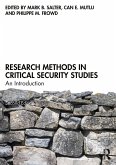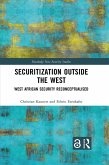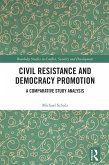Dieser Download kann aus rechtlichen Gründen nur mit Rechnungsadresse in A, B, BG, CY, CZ, D, DK, EW, E, FIN, F, GR, HR, H, IRL, I, LT, L, LR, M, NL, PL, P, R, S, SLO, SK ausgeliefert werden.
Peter Jones, Associate Professor of Public and International Affairs, and Executive Director of Ottawa Dialogue, University of Ottawa, Canada
'This is an exciting book because the authors of the sixteen chapters are distinguished scholars from many countries, who met together with draft chapters focusing on the evolution of interactive problem-solving practices to overcome protracted conflicts. The result is an integrated set of important perspectives about many advances to such practices over time, in varying circumstances.'
Louis Kriesberg, Maxwell Professor Emeritus of Social Conflict Studies, Professor Emeritus of Sociology, Syracuse University, USA
'This book does more than assemble former students, colleagues and friends to offer us a Gedenkschrift to honor Herb Kelman's legacy. It brings together outstanding peace and conflict studies scholars and practitioners to engage in the future of learning about complexity thinking and system dynamics, areas that were championed by Kelman as he pursued knowledge to understand the perplexing challenges posed by protracted conflict. In this volume, the contributors build on Kelman's work to help us to understand better how systems can be shaped through sustained and meaningful understanding and engagement.'
Pamina Firchow, Associate Professor of Coexistence and Conflict, Heller School for Social Policy and Management, Brandeis University
"...In extraordinary ways the composite contribution found in this volume helps us understand and engage more strategically with the bridges that connect sustained dialogue with system's change. As such, this volume offers both legacy and pathbreaking ideas, a much needed push at this moment globally with the rise of authoritarian impulses and the militarization of both civil and international conflict."
Extract from the Foreword by John Paul Lederach, senior fellow, Humanity United, and Professor Emeritus of International Peacebuilding, University of Notre Dame, USA









